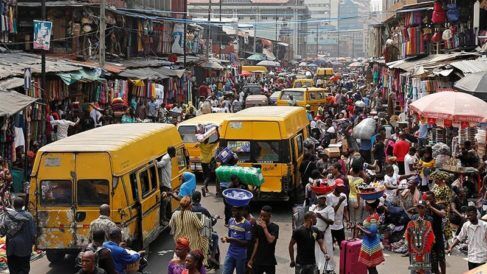World bank‘s recent economic projections for Nigeria reveal an optimistic outlook, forecasting a growth rate of 3.3% for the current year. This figure represents a notable improvement from the 2.9% reported at the close of the previous year. Although slightly behind the sub-Saharan Africa (SSA) region’s anticipated growth of 3.8%, Nigeria’s economic trajectory remains well above the estimated global average of 2.3%.
In its comprehensive Global Economic Prospect (GEP) report, the World Bank expresses confidence in Nigeria’s economic future, envisioning a further strengthening to 3.7% in the subsequent year. This forecast is noteworthy not only for its positive stance but also for surpassing the expected global output growth, marking a one percentage point increase.
These revised projections for 2024 and 2025 stand in stark contrast to those presented in June, where the figures were 3% and 3.1%, respectively. This upward adjustment underscores the World Bank’s growing assurance in Nigeria’s economic prospects, primarily attributed to downstream oil and foreign exchange reforms initiated in the middle of the preceding year.
The World Bank emphasizes that the macro-fiscal reforms, which commenced in June, are gradually yielding positive results. One significant assertion is the anticipation of per capita income returning to pre-pandemic levels by 2025. The driving forces behind this anticipated growth are identified as agriculture, construction, services, and trade sectors.
A notable aspect highlighted in the report is the expected gradual easing of inflation in Nigeria. The report attributes this trend to the diminishing effects of last year’s exchange rate reforms and the removal of fuel subsidies. Structural reforms are further expected to boost fiscal revenue, contributing to the overall economic stability.
The report extends its analysis to the broader SSA region, projecting a growth acceleration to 3.8% in 2024 and a further firming to 4.1% in 2025. It notes that while the largest economies in SSA might lag behind the regional average growth, non-resource-rich economies are expected to maintain growth rates exceeding the regional average.
Despite the positive outlook, the report sounds a cautionary note regarding the global economic landscape. It suggests that the current year could mark the slowest growth in three decades, emphasizing the precarious state of the world economy. The report acknowledges, however, that the global economic condition is comparatively better than it was a year ago.
A significant point of concern highlighted in the report is the potential impact of mounting geopolitical tensions on the world economy. The report warns that without adequate measures, these tensions could pose fresh near-term hazards. It cautions that if a major course correction is not undertaken, the 2020s could be remembered as a decade of wasted opportunity.
Conclusion

Nigeria
The report’s underscores the importance of decisive actions by governments worldwide to avoid stagnation. It calls for accelerated investment and strengthened fiscal policy frameworks to unlock opportunities and address challenges. The World Bank Group’s Chief Economist and Senior Vice President, Indermit Gill, urges governments to act promptly, stating that the report provides a clear path forward for transformative change.
Source: guardian.ng










